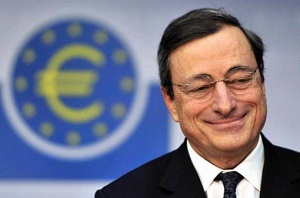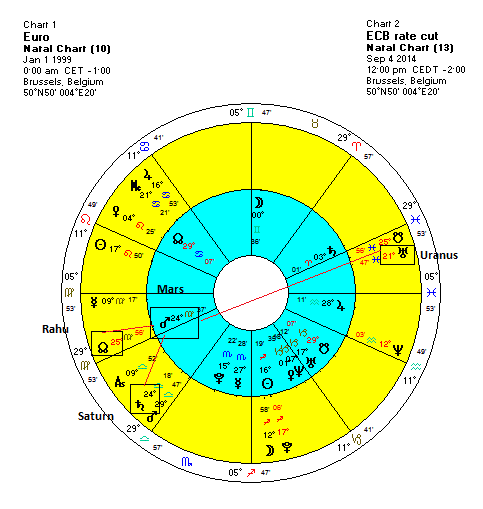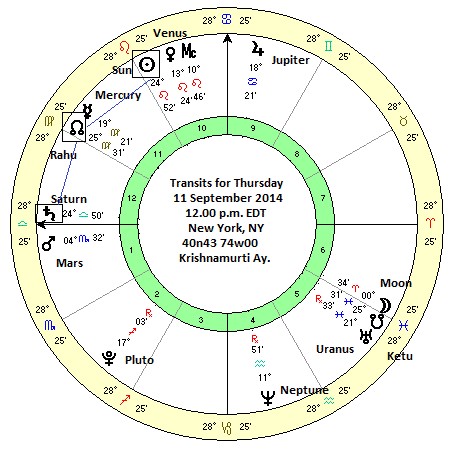 (7 September 2014)
One wonders when all this talk about an economy that is "moving in the
right direction" will finally end and the economy will truly get back to
"normal". But six years after the Great Recession of 2008, most
Western economies are still struggling and remain below their
pre-meltdown levels by most measures. This never-ending recovery has
seen the official US unemployment fall to 6% but many discouraged
workers have simply dropped out of the labor force and are therefore not
counted. Wages have been stagnant while much of the Fed's
zero-interest rate and QE policy seems to have helped Wall St. and the
wealthy more than the average person. The Fed's version of trickle down
economics has purposely driven up the stock market to record highs.
Unfortunately, someone should inform Janet Yellen that the majority of
Americans don't actually own stocks so this only makes the rich richer.
The situation in Europe is arguably worse as several countries have now
actually slipped back into recession as official unemployment is stuck
at a stubbornly high 12%.
(7 September 2014)
One wonders when all this talk about an economy that is "moving in the
right direction" will finally end and the economy will truly get back to
"normal". But six years after the Great Recession of 2008, most
Western economies are still struggling and remain below their
pre-meltdown levels by most measures. This never-ending recovery has
seen the official US unemployment fall to 6% but many discouraged
workers have simply dropped out of the labor force and are therefore not
counted. Wages have been stagnant while much of the Fed's
zero-interest rate and QE policy seems to have helped Wall St. and the
wealthy more than the average person. The Fed's version of trickle down
economics has purposely driven up the stock market to record highs.
Unfortunately, someone should inform Janet Yellen that the majority of
Americans don't actually own stocks so this only makes the rich richer.
The situation in Europe is arguably worse as several countries have now
actually slipped back into recession as official unemployment is stuck
at a stubbornly high 12%. Enter ECB President Mario Draghi. Last week, the head of the European Central Bank followed the Fed's playbook and cut EU interest rates to near zero (0.05% to be precise) and announced a QE-style debt buyback program of his own. The risk of another full-scale recession and deflation (i.e. falling prices) forced Draghi to essentially print more money in an attempt to encourage more economic activity in the Eurozone. His move to cut rates to zero is aimed at getting more European banks to lend to businesses who may in turn hire more workers. That's the theory anyway.
These moves by the ECB also amounted to a de facto devaluation of the Euro as lower rates meant less reason for investors to hold Euros. The fall in the Euro may well be the underlying logic for the rate cut since a lower currency ought to boost export-related jobs as their goods become cheaper. In fact, we should see these recent stimulus measures by the ECB, the Fed, or the People's Bank of China as currency devaluations aimed at kickstarting the economy. A similar currency war occurred during the Depression in the 1930s as governments were desperately looking for any way they could to escape the downward economic spiral. History is repeating itself.

In my financial newsletter, I had been forecasting a significant summer decline in the Euro. This has largely come to pass as the Euro ended the week under 1.30 against the US Dollar after trading as high as 1.40 in May. There were several astrological influences behind this decline in the Euro. First and foremost, transiting Rahu (North Node) is conjunct the natal Mars (24 Virgo) in the Euro horoscope. Rahu is considered a natural malefic by Vedic authorities although it can also correspond with positive outcomes depending on other factors in the chart. A more negative outcome was more likely here since the planet it was conjunct, Mars, is also a natural malefic.
Moreover, Mars was closely opposed by destabilizing Uranus (21 Pisces) and this may have made the Rahu influence more likely to manifest negatively. We may also speculate on the effects of the close 30-degree alignment between transiting Saturn (24 Libra) and Mars. While Saturn is not properly aspecting Mars, the exact alignment is usually important enough to coincide with some effects. The devaluing of the Euro is a very appropriate manifestation of this triple whammy of Rahu, Saturn and Uranus. The four-month long decline of the Euro began in May with a similarly negative astrological influence as Ketu (South Node) conjoined natal Saturn (3 Aries). Again, this was a conjunction of two naturally malefic planets not unlike the current situation.
I would expect the Euro to continue its decline well into 2015. While Rahu will move away from Mars fairly soon, Uranus will form a more exact opposition to Mars next year. We could therefore see the Euro move much lower still. This suggests the recession in the Eurozone will likely worsen and hence force Draghi to buy a larger amount of asset and government debt. The money printing may well continue indefinitely, or until we get hyper-inflation or a deflationary collapse. Either way, I'm not optimistic.
Financial Markets Update
The ECB interest rate cut helped to boost stocks last week as investors cheered the inflow of liquidity. The Dow was up marginally closing at 17,137 while the Sensex added 400 points finishing at 27,026. I had been somewhat neutral last week given the mix of planetary influences in play. We did get some modest gains in the first half of the week on the respective Venus and Jupiter influences. And the entry of Mars into sidereal Scorpio on Thursday did correlate with declines in many global markets that day.
This week again offers support for both bulls and bears. The midweek Jupiter-Mercury aspect looks bullish so we could see some gains. But the late week Sun-Saturn-Rahu pattern looks more difficult for stocks. We could see the Euro fall further this week along with gold and other commodities as more money moves into the Dollar.
